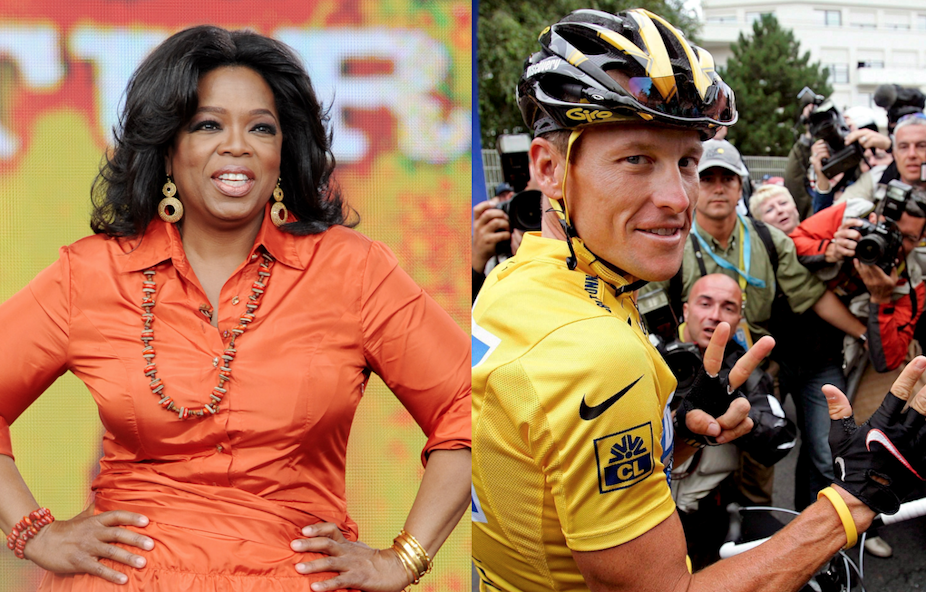How Lance Armstrong handles his soon-to-be aired interview with Oprah will impact on the fate of Livestrong, which he founded in happier days. That’s because organisations, including non-profits such as Livestrong, live and die based on how those in the market assess their brand.
Organisations with positive brand images are seen to effectively deliver higher value. In the case of non-profits, this results in increased donations from the community, as well as being in demand as a partner by other non-profits, governments and businesses.
Indeed, protecting their brand may even be more important for non-profits than other brands because their brand encompasses all their activities, including charitable works. And brands that are formed around individuals, as well those that extensively link themselves with spokespersons or celebrities, are potentially at risk when the celebrity or founder falls from grace and their personal brand becomes tarnished.
The value of having celebrity spokespersons is that the organisation gains market credibility because the celebrity has expertise, trustworthiness, or they’re attractive. In this way, the celebrity becomes the voice of experience that stakeholders (donors, those being helped and partner organisations) can relate to.
Having a sports hero as a spokesperson is beneficial because sportspeople exude confidence, technical proficiency and expertise in their chosen area. These characteristics are then transferred to the brands that they’re representing.
It’s not surprising that there are many examples of firms cutting their ties with celebrities who have fallen from grace as the result of inappropriate individual behaviour. In these cases, the celebrity brand loses its shine and organisations become concerned that the celebrities’ negative image will be transferred to them. The firms that Tiger Woods was sponsored by lost substantial share value after the Tiger Woods scandal, at least in the short term.
So it wasn’t surprising when Lance Armstrong resigned from the board of Livestrong after the US Anti-Doping Agency (USADA) implicated him in doping. This was clearly his attempt to distance himself from organisation and protect Livestrong’s brand. But given the close link between Livestrong and Armstrong, it’s unclear whether donors and organisations working with the non-profit will make any distinction between them.
The problem is that, for years, and despite rumours elsewhere in the sport, Armstrong vehemently argued that his performance was a testament to his dedication and effort – and that it was unaided by performance-enhancing drugs. He lambasted “drug cheats” claiming that they tarnished the cycling profession. And he used his “drug-free performance” to position his life and Livestrong, promoting the idea that people could overcome cancer and succeed in life’s challenges.
So, not only was he the spokesperson for Livestrong, Armstrong was the “poster boy” for all the positive values that it represented. He was a shining example to all cancer sufferers that there was life after cancer and showed that they too could be highly successful if they put in hard work and dedication.
Armstrong’s fall from grace was significant. His silence on the US report into drug abuse in cycling was unfortunately seen as a sign of his guilt, especially when he refused to dispute its claims or fight to stop the stripping of his seven Tour de France titles.
Armstrong’s recent “no-holds barred” interview with Oprah Winfrey (to be aired at 4:30pm AEST on oprah.com) is supposed to clear the air and is thought to feature his admission that he took performance-enhancing drugs. On the same day the interview was taped, he [met with Livestrong staff](http://in.reuters.com/article/2013/01/14/cycling-lance-armstrong-doping-livestron-idINDEE90D0GQ20130114?feedType=RSS&feedName=topNews&utm_source=feedburner&utm_medium=feed&utm_campaign=Feed%3A+reuters%2FINtopNews+(News+%2F+IN+%2F+Top+News) and apologised for “any stress that they’ve suffered over the course of the last few years as a result of the media attention.”
But how this controversy and Armstrong’s apology impact Livestrong partly depends on what he says in his interview and how it is received. If he gives an apology that comes across as insincere or incomplete (not a full and frank admission of events), then it’s highly likely that people will have a negative reaction and potentially transfer this negative credibility onto Livestrong.
On the other hand, if the interview seems credible, heartfelt and sincere, there may be a positive impact on Livestrong. That is, people may feel sympathetic toward Armstrong and want to show their support through the Livestrong cause.
The fate of Livestrong is, at least in the short term, clearly linked to Armstrong and how he handles the interview is critical. It’s possible that the only way he can minimise any negative backlash to Livestrong is to apologise and seek forgiveness humbly and with contrition.
Doing this frankly would support the values that made Armstrong such an iconic celebrity. It would show him, once again, standing up for what is right and showing that surviving cancer, like surviving life, is difficult, but something we can all succeed at.

